The world of the invisible spirit god Keikobad is mysterious and unfathomable and encompasses the past, the present, and the hereafter.
ACT I
Twelve months have passed since the Emperor has taken as his wife the daughter of the spirit god Keikobad, whose mother was a mortal woman.
For the 12th time in one year a messenger from Keikobad demands from the Empress’s Nurse information on the condition of the Empress, who is the daughter of Keikobad and a mortal woman. As a half-spirit, she can neither bear children nor cast a “shadow.” If she seeks closeness to humans, her father’s empire will be threatened. The Empress must acquire a “shadow” within three days or she will have to return to her father, and her husband, the Emperor, will be turned into stone.
Coming from his wife’s chamber, the Emperor tells the Nurse of his plans to go hunting. He reminisces about how he won the Empress to be his wife: While he was hunting a white gazelle that cast no shadow, the wings of his red hunting falcon blinded the animal. When she fell and he attacked her with a spear, the gazelle changed into a woman. The falcon was wounded and lost. The wily Nurse finds out that the Emperor will be gone for three days. He admonishes her to be vigilant and departs.
The Empress awakens and mourns the loss of a talisman that gave her the power of transformation. She longs for the body of the white gazelle and for the wings of a bird. The long lost falcon returns, and when the Empress recognizes him she detects tears in his eyes. He tells her that she cannot cast a “shadow” and that the Emperor must turn to stone. Frightened by the ominous prophecy, the Empress begs the Nurse for help. With malicious eagerness, the Nurse shows her the way to the world of humans, where a “shadow” can be found. They delve into the abyss of the human world.
In the shabby world of the dyer Barak and his Wife, his three brothers fight over a small piece of bread. The Dyer’s Wife separates the fighting men. Barak comes home and sends away his quarrelling brothers who deeply resent their sister-in-law. His Wife has lost her patience but her annoyance is deflected by Barak’s pity. He repeats his wish to have children, but she closes her mind to his entreaties and continues her defensive nagging. Barak, loaded with his goods, leaves the house.
Disguised as servants. the Nurse and the Empress appear on the staircase connecting the Empress’s glass world with the abyss of the human world. In the home of the dyer Barak, his frightened Wife is suspicious about the Nurse’s flattery. The Empress is enthralled with the human woman. The Wife feels mocked. The Nurse awakens her curiosity with a remark about a secret and entices her to make a bargain for the “shadow” that she, as a human, can cast. She tempts the hesitating woman with jewelry and transforms her into a princess surrounded by slaves. Barak’s Wife admires herself in the mirror and succumbs to the magic when the Apparition of a Young Man appears. When the Empress urgently questions her about the bargain for the “shadow,” the Young Man Vanishes.
As the Wife is about to conclude the agreement, she hears Barak return. She feels guilty because she has not prepared her husband’s evening meal and divides the bed. The Nurse and the Empress promise to return for the next three days. Left alone, Barak’s Wife is alarmed by the sound of invisible children’s voices. She imagines that they are reproaching her as a cold-hearted mother. Barak returns. The Wife keeps her promise to the Nurse of denying herself to her husband as the two go off to separate beds. The night watchmen’s call extols the glories of marriage and parenting.
ACT II
The next morning at Barak’s home. The servants (the Nurse and the Empress in disguise) escort the departing Barak. As soon as he is gone, the Nurse calls upon the Apparition of a Young Man. The woman believes she hates her husband and thinks it would be easy to deceive him. When Barak returns he interrupts the encounter between the woman and the Young Man. For the first time the Empress shows her compassion for the dyer and her doubts about the machinations of the Nurse. Barak is accompanied by his brothers and a throng of beggar children. He is happy, but his Wife turns her back on him. He generously invites the children and the people from the street to dine at his house. The Wife refuses all food.
Searching for his wife, the Emperor roams through the dreary forest and finds his red falcon, who guides him to the Empress’s house. He finds the house to be empty. The Emperor’s suspicions flare up and he hides and watches the furtive return of the Nurse and the Empress. The Emperor erupts with jealousy and wants to kill his wife. He embarks on his path of trial and suffering with the falcon as his guide.
Barak is working, and the Nurse and his Wife impatiently wait for him to depart. He is tired and wants a drink. The Nurse drugs his drink and he falls asleep. Again the Nurse summons the Apparition of a Young Man. The Dyer’s Wife is at first reluctant, displaying heightened resistance, then approaches the apparition. At the last moment she becomes aware of her guilt, recoils, and calls out for Barak to help, awakening the drugged man who looks around bewildered. The gloating Nurse makes the Apparition of a Young Man vanish. Barak’s Wife believes herself free and leaves accompanied by the Nurse. The Empress is filled with compassion and affection for Barak.
The Empress is entwined in the Nurse’s evil game; she is innocently guilty. The spirit child is increasingly attracted to the human world, while the lowly and demonic Nurse detests anything human. Attracted to the humans, the Empress hears Barak’s soul speak to her in a nightmarish vision. His essence moves her; she feels guilty because for her benefit he will be deprived of his life’s happiness. She senses that everything human is dying under her touch. The call of the falcon echoes in her. In a lucid dream she sees herself in the greatest torment and anguish and her husband already turned to stone. She feels for Barak. She cannot help the one and she is bringing doom to the other. Only her death seems to be a solution.
The third night has fallen. The Nurse fears that she has conjured Keikobad’s anger with her wicked intrigue. The demonic evil drives her on her path to perdition. The Empress has matured through her insights. She wants to stay among the humans. The Dyer’s Wife pounces on Barak with false confessions of her own unfaithfulness. Barak and his brothers discern that the woman is no longer the same: she has sold her soul, her “shadow.” Angered, the dyer wants to kill her,but is restrained by his brothers. The Nurse encourages the Empress to steal her ownerless “shadow,” but the Empress refuses to commit the robbery. Her newly acquired human emotion, compassion, drives her to self-sacrifice. The pact is foiled. The deal has failed. The Nurse leads the Empress back to the spirit world. Barak and his Wife remain behind bewildered.
ACT III
The same night. Barak and his Wife find themselves mired in a deep emotional conflict and at the mercy of tormenting thoughts, remorse, and recognition. They must pass the last great test separated from each other. They now realize the inseparability of their love, and they are consumed by reproach and hope. A voice from above shows them the steps that will lead them upward to freedom from his labyrinth of guilt, despair, and unfulfilled longing.
A boat without a pilot approaches. It brings the Empress and the Nurse to the gates of the spirit world. The Empress remembers the mysterious gate from her dream—she recognizes the pre-ordained path and parts forever from the Nurse, who desperately attempts to hold her back. The Empress is admitted through the gate and enters the spirit world. The Nurse is damned and expelled from the spirit life. The boat carries her back to the human world as Barak and his Wife appear seeking each other.
The Empress wants to submit to her father’s judgment. On her way to him she happens on a body of gleaming golden water. The Guardian of the Threshold extols Barak’s Wife’s “shadow” and exhorts the Empress to drink from the water of life. Guilt-ridden, the Empress recalls her attempt at defrauding Barak and retreats from the beckoning water. The water vanishes. The Empress continues searching for her invisible father; she wants to hear his sentence.
When the hall opens the Emperor is visible, rigid and stony. Only his eyes seem to live. The Empress shrinks back in horror. Once again, the Guardian of the Threshold calls out to encourage her to accept Barak’s Wife’s “shadow” and to drink of the water. After a harrowing inner fight, the Empress refuses. With this, she has won. Keikobad passes his sentence: the Emperor is released from his suffering. Barak finds his Wife. The rapturous couples are reunited. The power of self-sacrificing love, the awareness of the responsibility toward the present and the future of humanity, and the willingness to suffer and even to face death have helped both couples pass the tests.
—Herbert Wernicke
The opera's story is set in the mythical empire of the Southeastern Islands and involves five principal characters: the Emperor (tenor), the Empress (soprano), her Nurse (mezzo-soprano), Barak, a lowly dyer (bass-baritone), and the Dyer's Wife (dramatic soprano). A sixth character, Keikobad, King of the Spirit Realm and father to the Empress, sets the plot in motion, but never appears on stage. The Empress is half human: she was captured by the Emperor in the form of a gazelle. She assumed human shape and he married her, but she has no shadow. This symbolizes her inability to bear children. Keikobad has decreed that unless the Empress gains a shadow before the end of the twelfth moon, she will be reclaimed by her father and the Emperor will turn to stone.
Act 1
Scene 1
It is dawn, outside the bedchambers of the Emperor and Empress. The Messenger of Keikobad arrives, and tells the Empress's nurse that the Empress must acquire a shadow within three days, or will be forcibly returned to his realm, and the Emperor turned to stone. The Nurse is excited about the prospect of returning to the spirit world, since she hates humans and having to dwell with them.
The Messenger leaves and the Emperor emerges from his bedchamber. He departs on a three-day hunting trip, seeking his favorite falcon, which he drove away for attacking a gazelle that later turned into the Empress. He leaves his wife to the Nurse's care. The Empress emerges from her chamber and reminisces about times when she had the ability to turn into any creature she wanted.
It is revealed that after being attacked by the red falcon that the Emperor is seeking, she lost a talisman that gave transformation powers, and on which was inscribed a curse that foresaw the fate she and the Emperor are about to face if she does not acquire a shadow. The red falcon appears and warns the Empress that the curse is about to be fulfilled. The Empress begs the Nurse to help her get a shadow. The Nurse, who is steeped in magic, suggests descending to the mortal world and finding a woman who will sell her shadow to the Empress.
Scene 2
Barak, a dyer, shares his hut with his Wife and his three brothers: the One-Eyed Man, the One-Armed Man, and the Hunchback. The three brothers fight about a stolen item and are separated by the Wife, who throws a bucket of water at them. The brothers-in-law then argue with the Wife. Barak enters and stops the argument. The Wife wants to have her in-laws thrown out, but her husband refuses.
The Dyer desires children, but his Wife fears the responsibility and has secretly sworn not to have any. The Dyer and his brothers leave, and the Empress and the Nurse arrive in disguise. The Wife wants them out of her house but the Nurse conjures up visions of luxury and promises them to the Wife in return for her shadow. The Wife agrees to deny her husband for three days during which the Nurse and the Empress will live at the Dyer's hut as poor relatives who have come to work as servants.
Barak approaches and the Wife is worried that dinner is not ready, the Nurse once more uses her magic to have everything ready, including the splitting of Barak's bed in two. The Nurse and Empress disappear, and the Wife is greatly upset by the offstage Voices of Unborn Children lamenting, which emerge from the fish that are cooking on the fire. The Dyer returns to find he is barred from his marital bed. The Wife curtly informs him of the impending stay of her "cousins" and goes off to her separate bed. From outside the Town Watchmen are heard singing of the importance of conjugal love. Barak sighs and lies down to sleep on the floor.
Act 2
Scene 1
The Empress, acting as a servant, helps the Dyer leave for work, but is troubled by her role, because Barak is very kind to her. The Nurse conjures up the image of a handsome youth by bringing a broom to life, which tempts the Dyer's Wife. The Dyer returns with his hungry brothers and beggar children. He has had a magnificent day at the market, selling all his goods, and has invited everyone to celebrate. However, his Wife manages to ruin the celebration.
Scene 2
The Emperor is led to his hunting lodge in the forest by the red falcon. He sees the Empress and Nurse surreptitiously enter the lodge, and is suspicious. When he comes closer, he smells a human odor trailing the Empress. Thinking she has betrayed him, he resolves to kill her. He first thinks of using an arrow, and then his sword, and then his bare hands. Finally he realizes he can't do it. He resolves to seek out some isolated ravine to be alone with his misery.
Scene 3
At the Dyer's house, the Dyer is drugged into sleep by the Nurse. The Nurse again conjures up the young man for the Wife, who grows frightened and rouses the Dyer. Barak is surprised to learn that there is a man in his house but then is quickly turned upon by his Wife, who shouts at him, then leaves for the city, leaving her confused husband. Left alone with Barak, the Empress feels more guilty than before.
Scene 4
The Empress goes to sleep at the hunting lodge, but in her sleep she is further troubled by her crime and by the possible fate of the Emperor. In a dream, she sees the Emperor enter her father's realm. Unseen choruses chant the curse of the talisman. Awakening, she is overcome with guilt and remorse.
Scene 5
The next day, the Wife announces that she has sold her shadow. When a fire reveals that she has no shadow, the enraged Barak is ready to kill her. The Empress cries out that she no longer wants the shadow. A sword appears in the Dyer's hand. His brothers restrain him as the Wife declares her remorse and urges Barak to kill her. An earthquake splits the ground and Barak and his wife are swallowed into the earth. The brothers flee, and the Nurse, recognizing Keikobad's hand, spirits the Empress away.
Act 3
Scene 1
In a grotto beneath the realm of Keikobad, the wife and the Dyer are seen in separate chambers, unaware of the other's presence. The Wife is haunted by the Voices of Unborn Children. She protests that she loves the Dyer, who regrets his attempted violence. A voice directs them up separate staircases.
Scene 2
The Empress and Nurse arrive before Keikobad's Temple. The Nurse tries to convince the Empress to escape but she remembers the doors from her dream and knows that her father is waiting for her on the other side. She dismisses the Nurse and enters. The Nurse foretells terrible tortures awaiting the Empress and misleads the Wife and Barak, who are looking for each other, she to die at her husband's hand, he to forgive her and hold her in his arms. Keikobad's Messenger condemns the Nurse to wander the mortal world.
Scene 3
Inside the Temple, the Empress speaks to Keikobad, asking for forgiveness and to find her place amongst those who cast shadows. Keikobad does not answer but shows the Emperor already almost petrified. The Fountain of Life springs up before the Empress, and a temple guardian urges her to drink from it and claim the Wife's shadow for herself. But the Dyer and the Wife are heard offstage, and the Empress refuses to steal their future happiness and become human by robbing humanity from someone else: "Ich will nicht!" ("I will not!"). This act of renunciation frees her: she receives a shadow, and the Emperor is restored to natural form
Scene 4
The scene changes to a beautiful landscape. Barak and his Wife are reunited and she regains her own shadow. Both couples sing of their humanity and praise their Unborn Children.


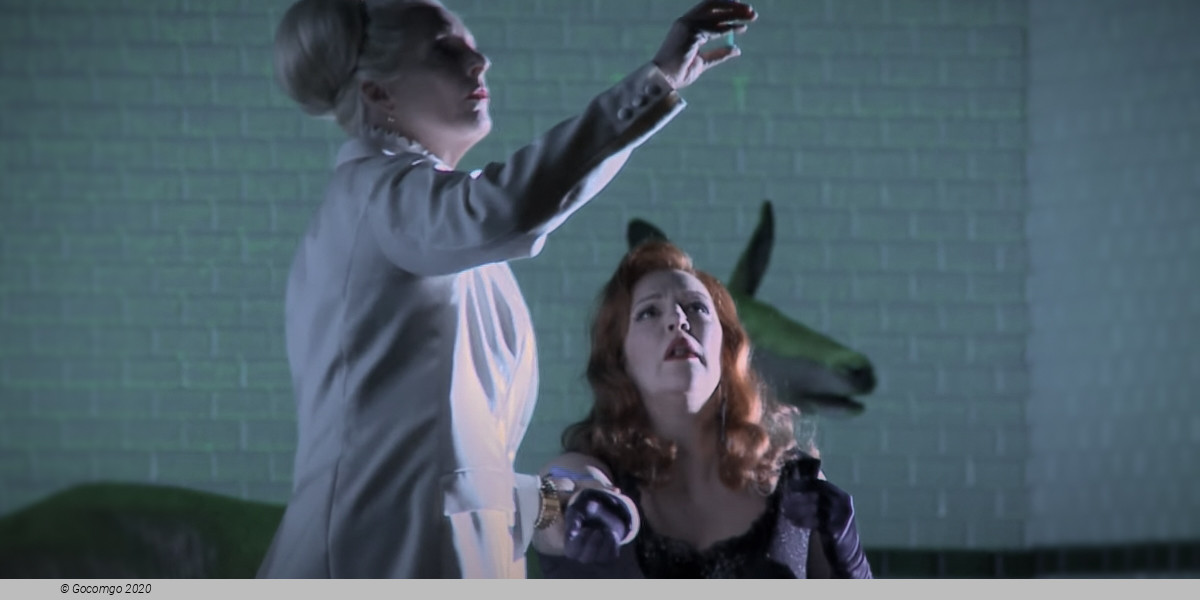
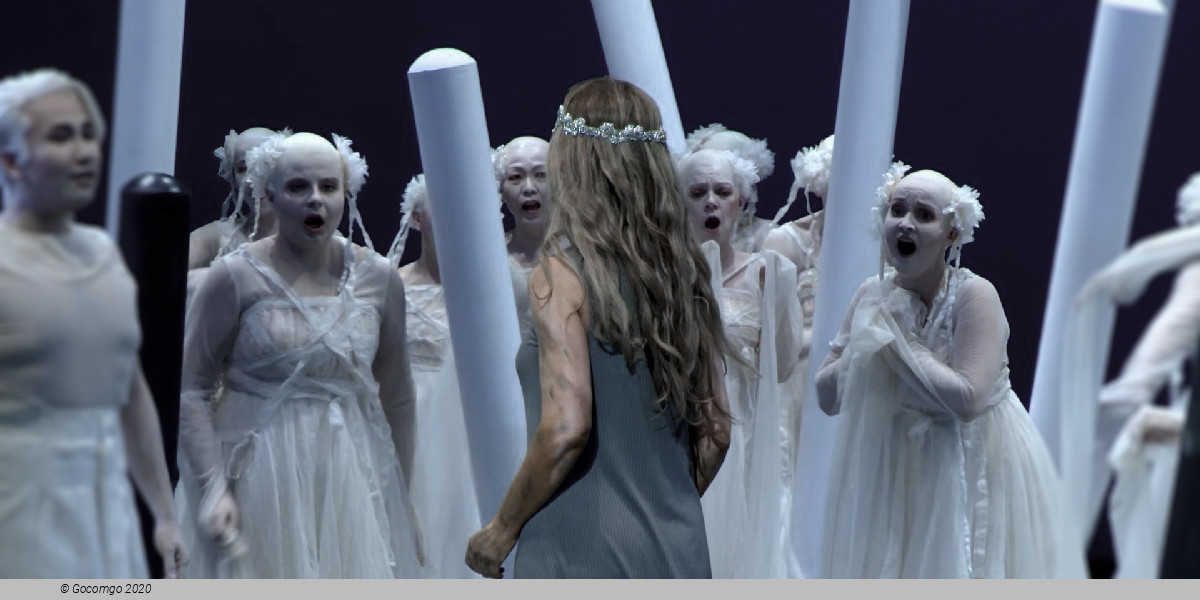
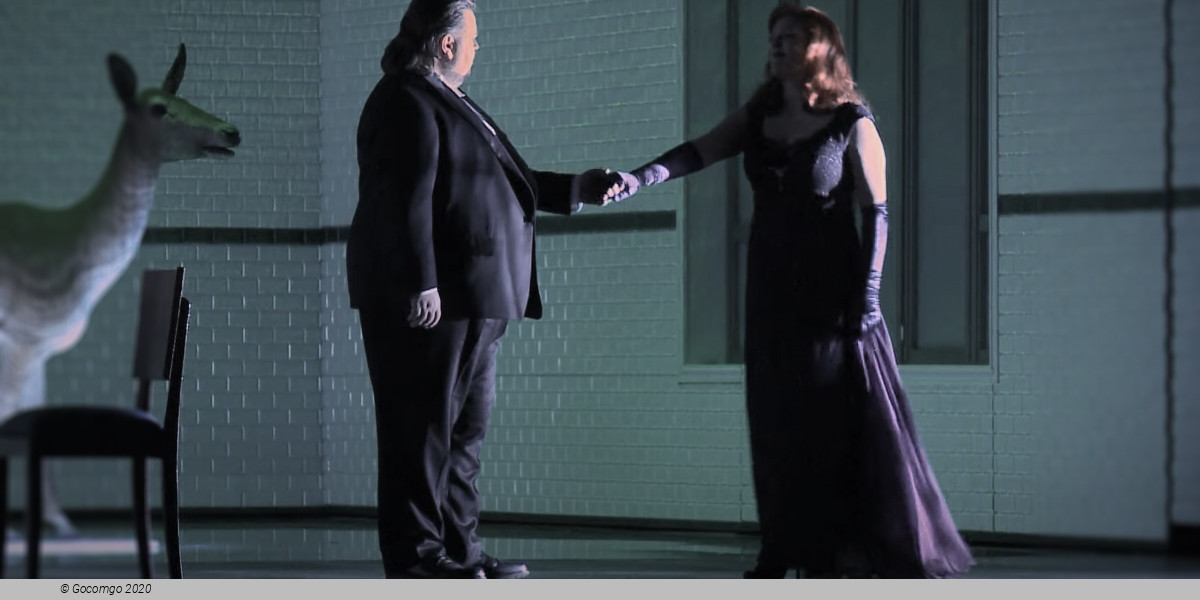
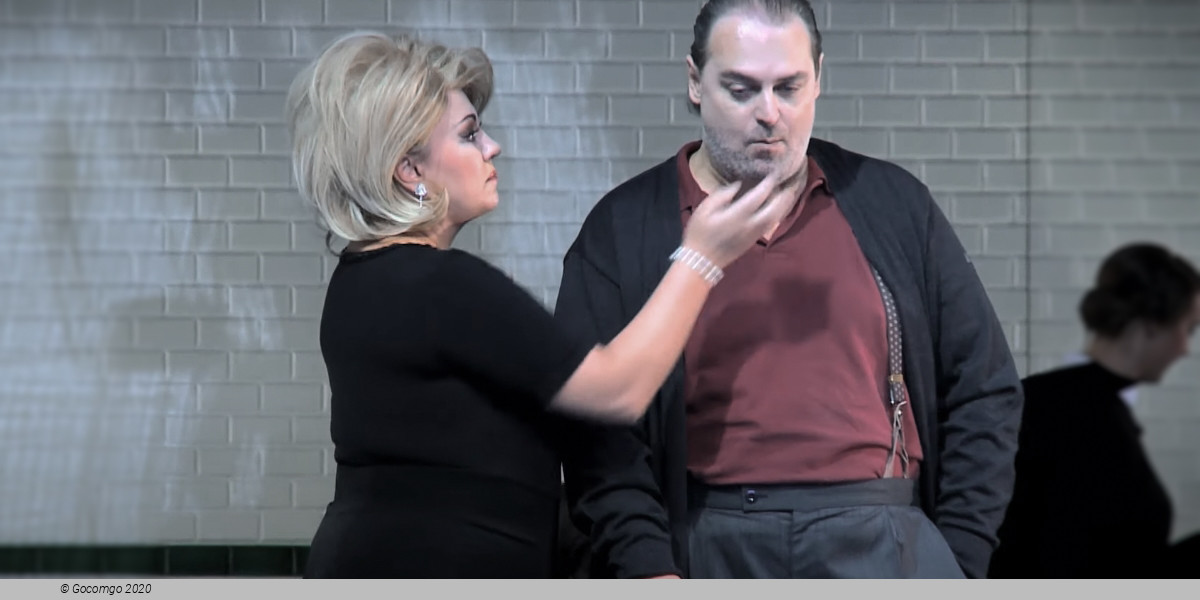
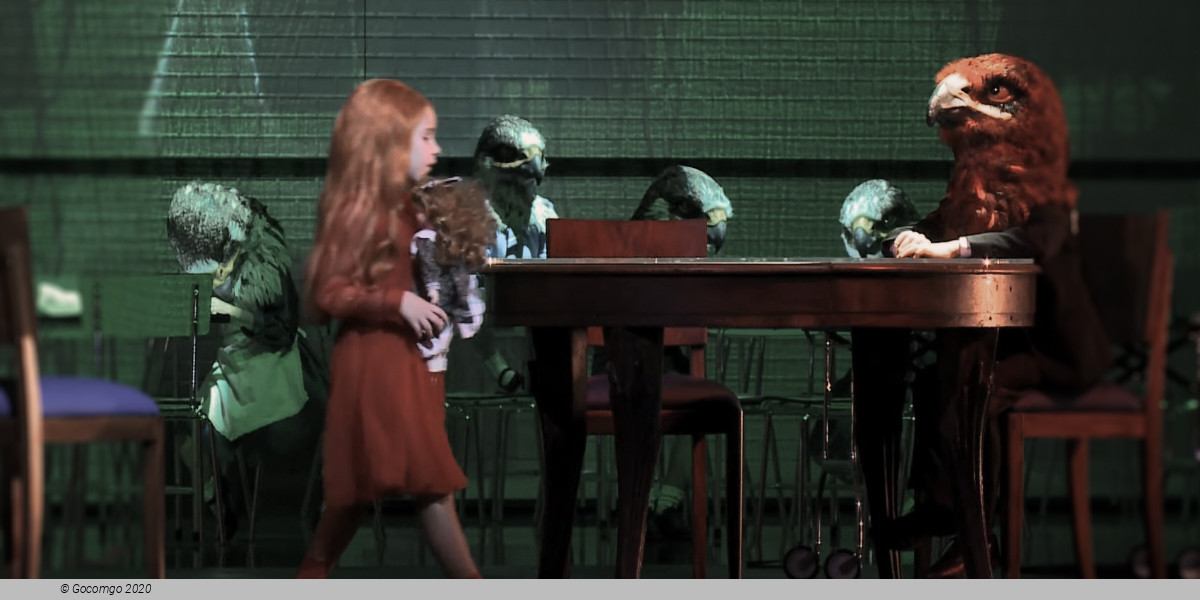
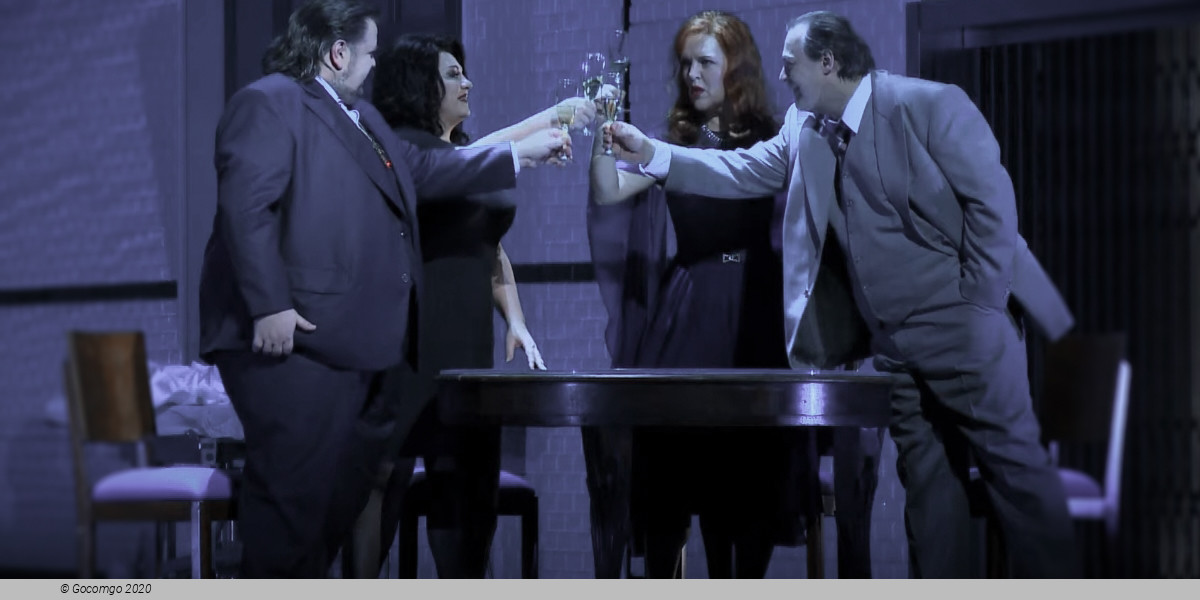
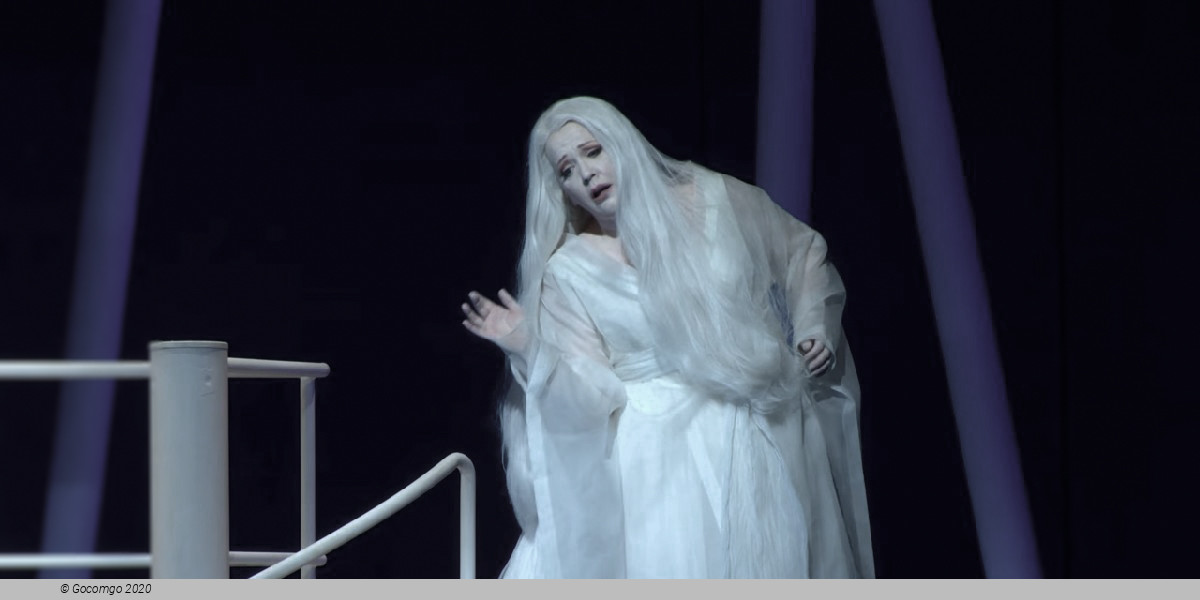
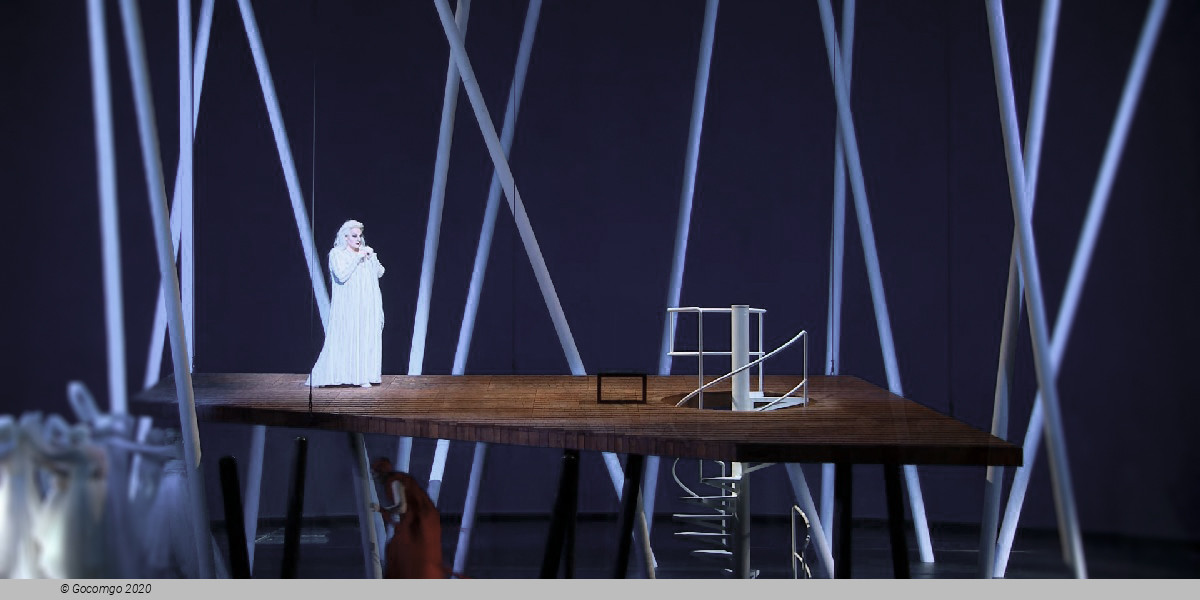
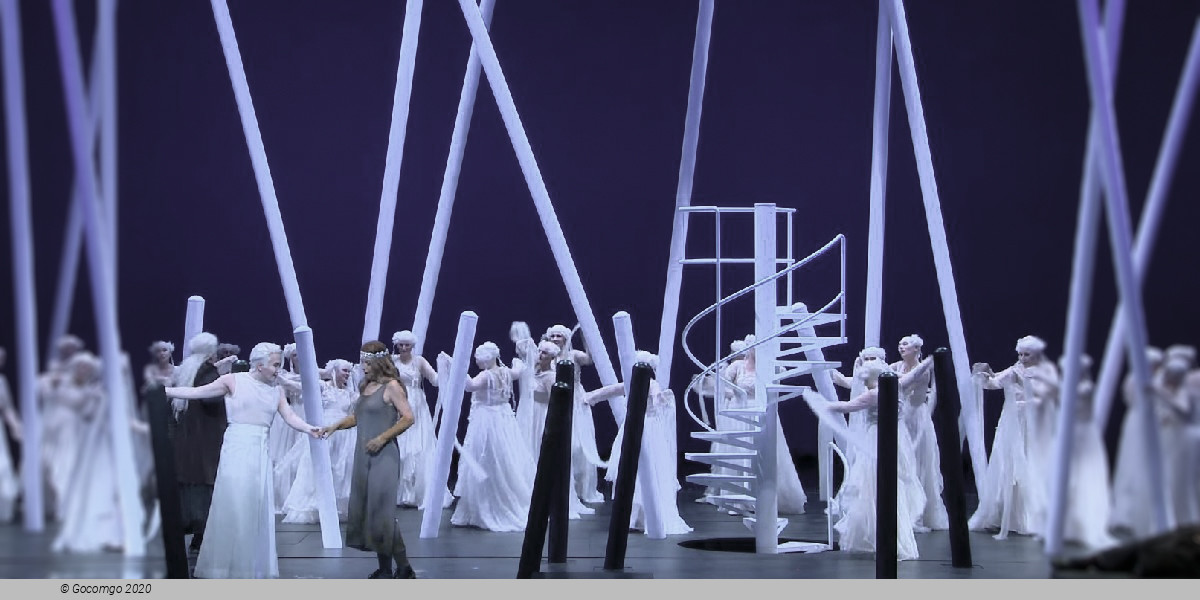
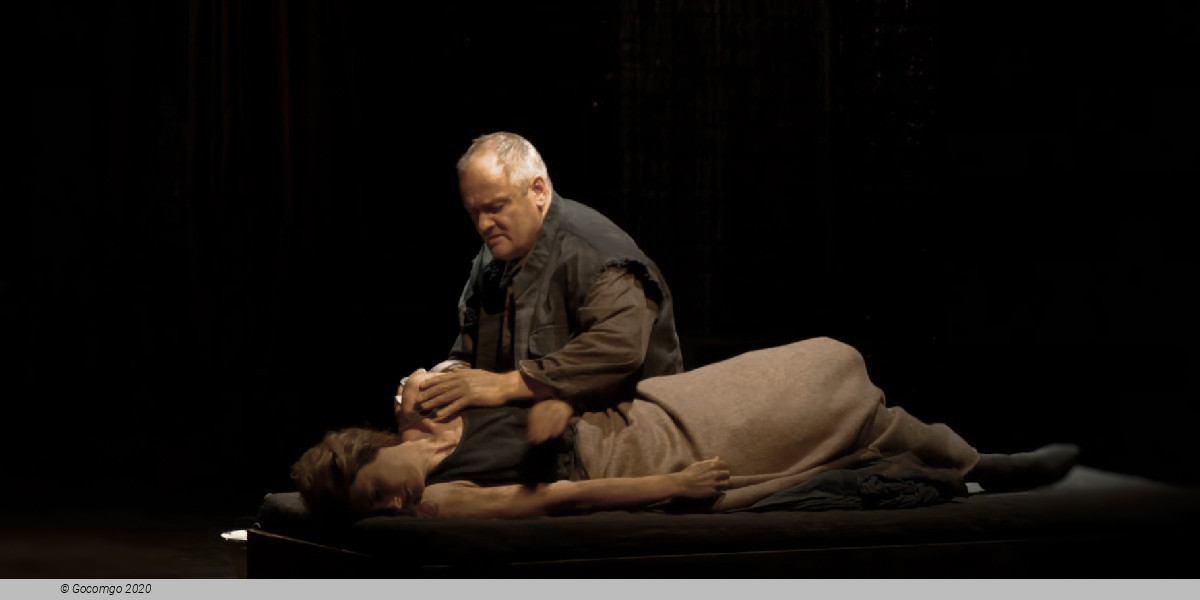
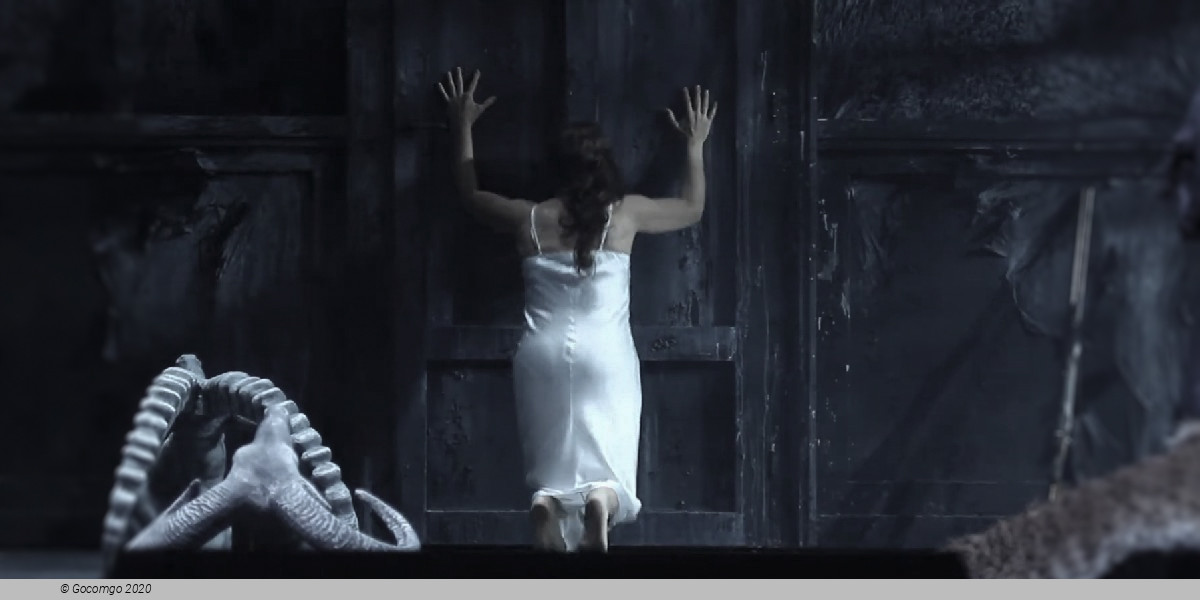
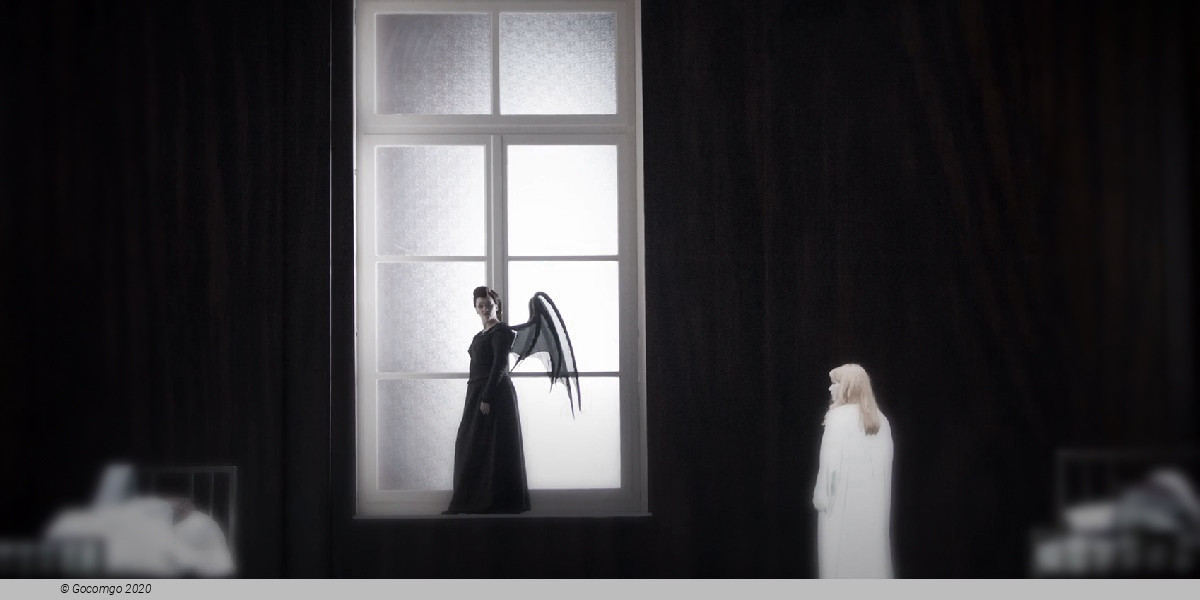
 30 Lincoln Center
30 Lincoln Center